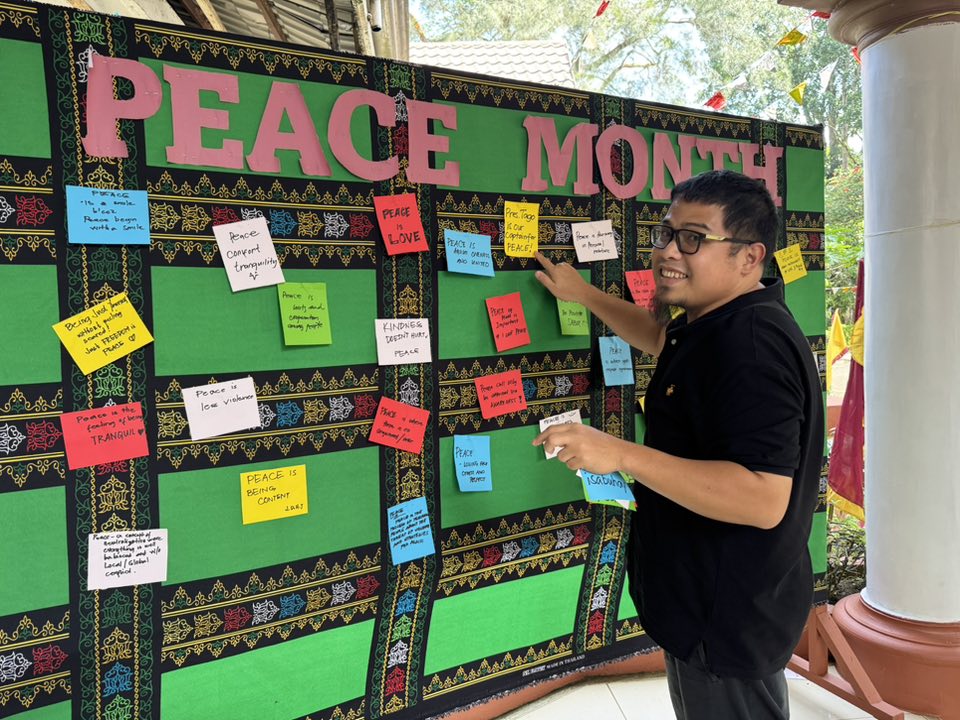Aliah Pacalna Cali-Pascan, DPA, JD
In a powerful tribute to PeaceConsciousness Month, Mindanao State University (MSU) has unveiled a “Peace Wall” where students and faculty express their personal thoughts on peace. This canvas of hope, love, and unity is a living reflection of the collective desire for a harmonious community. A recent contribution from Dr. Tirmizy Abdullah, a peace researcher at MSU, has highlighted the pivotal role of university leadership in this mission.
Dr. Abdullah shared his perspective that the university’s leader, President Tago, is the “captain for Peace.” This statement underscores a sense of confidence and shared purpose, suggesting that the university’s leadership is a guiding force in fostering a culture of peace and understanding. Dr. Abdullah’s message also included a simple yet powerful call to action: “MSU is Love. Spread Love. Kalilintad ay Isabuhay. Para sa Kapayapaan, MSU.”
This declaration embodies the core values of the peace initiative. The phrase “Kalilintad ay Isabuhay,” which means “Live Peace” in the Maranao language, elevates the concept of peace from an abstract idea to a daily practice. It urges individuals to embody peace in every action and interaction. The final part, “Para sa Kapayapaan, MSU,” solidifies the university’s commitment to its role as a beacon of peace in the region.
The Peace Wall, with contributions like Dr. Abdullah’s, is a living testament to the MSU community’s ongoing commitment to building a culture of peace from the ground up. It shows that peace is a collaborative effort, a journey guided by committed leaders, and a daily practice embraced by every individual who chooses to spread kindness and love.



